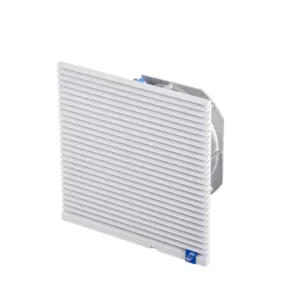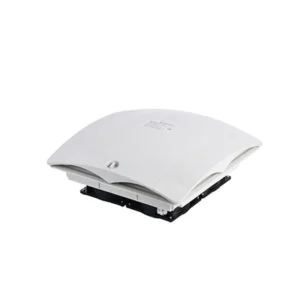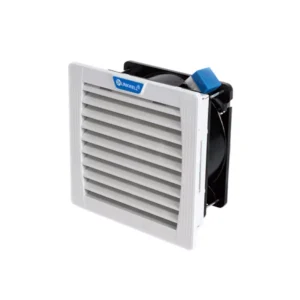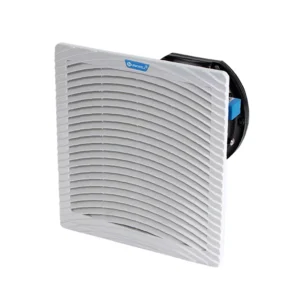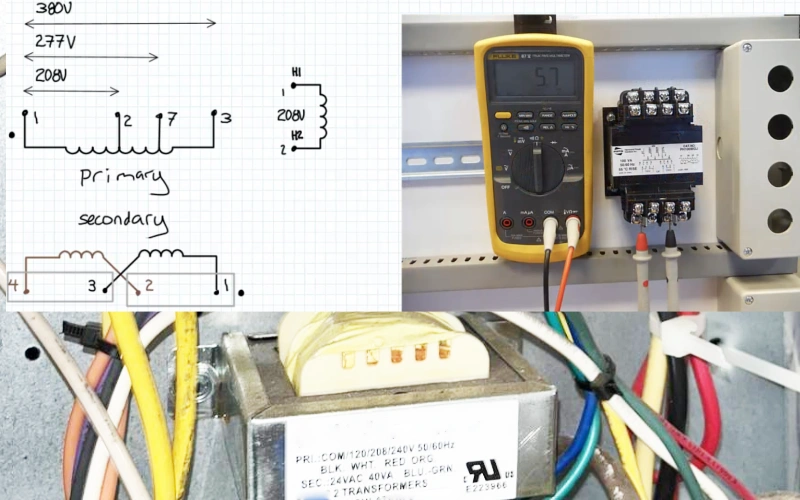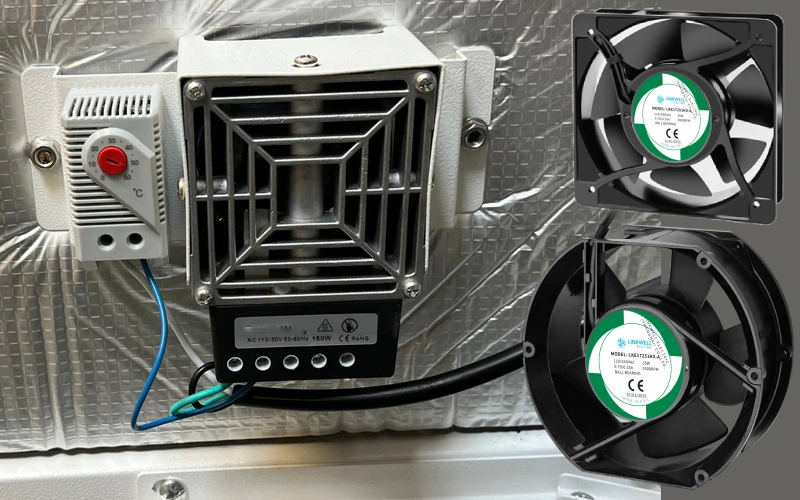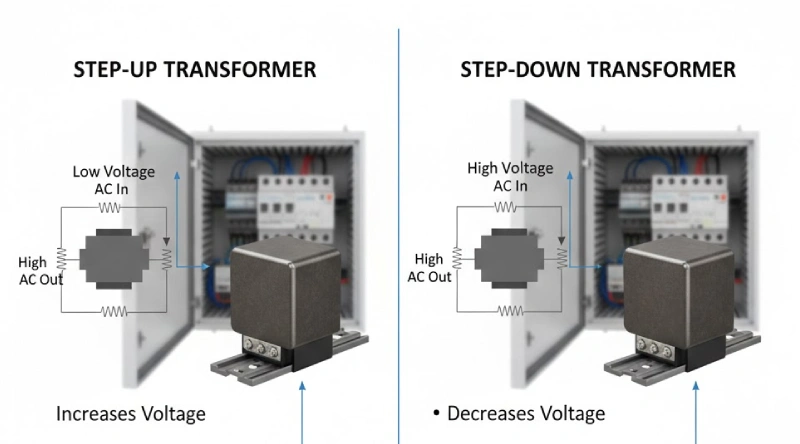When considering Ac vs Ec Fans for your cooling needs, it’s important to know that EC fans are the superior choice. Recent studies reveal that EC fans can use up to 70% less power compared to AC fans, making them an excellent option for modern cooling systems, including those in data centers.
When evaluating Ac vs Ec Fans, you should pay attention to efficiency, cost, and overall performance, as these factors directly impact your expenses.
Making the right choice between Ac vs Ec Fans can lead to significant energy and cost savings. Linkewell’s fan filter units are designed to deliver powerful and reliable cooling, ensuring optimal performance for your applications.
Recommended products
Ac vs Ec Fans Key Takeaways
- EC fans use up to 70% less energy than AC fans. This helps you save money on your power bills.
- EC fans let you control speed exactly. This makes them flexible and efficient for many cooling needs.
- AC fans cost less at first. But they use more energy and need more repairs later.
- EC fans last longer and make less noise. They are better for places that are noisy or have little space.
- Linkewell’s fan filter units work with both types of fans. They help cooling and lower energy use.
AC vs EC Fans Overview
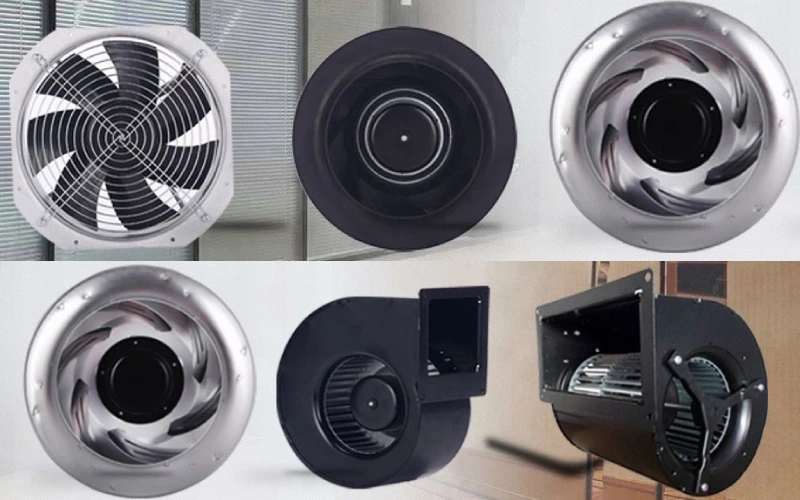
What is AC Fans Basics
AC fans are used a lot in factories and big buildings. An ac fan motor runs with alternating current. Most ac fans have a simple motor with two main parts. These parts are called the stator and the rotor. They are made from thin steel sheets. AC fans plug right into AC power. They last a long time and do not cost much. You can find ac fans in HVAC systems and machines. They are also in some home appliances. AC fans work well when you need fast airflow. They can handle wet or rough places. But ac fans usually run at only one speed. If you want to change the speed, you need extra equipment.
What is EC Fans Basics
An ec fan motor works in a different way. EC means electronically commutated. An ec fan has a built-in controller. This controller changes AC power into DC power inside the fan. The motor uses a permanent magnet rotor and smart electronics. These help control how fast and strong the fan blows. EC fans save more energy than ac fans, especially when not running at full power. You can easily change the speed of an ec fan. EC fans work well with smart control systems. This makes them great for new cooling setups in factories. They are small, quiet, and let you control airflow very well.
Key Differences
AC fans and ec fans work in different ways. They also perform differently. Here is a table to show how they compare:
| Feature | AC Motor (Induction) | EC Motor (Electronically Commutated) |
|---|---|---|
| Power Input | Uses AC directly | Converts AC to DC internally |
| Motor Construction | Laminated steel rotor, simple design | Permanent magnet rotor, integrated controller |
| Speed Control | Limited, needs external devices | Built-in, precise electronic control |
| Efficiency | 70-85%, drops at partial load | 80-90%+, high even at partial load |
| Control Complexity | Needs extra controllers | Built-in intelligence |
| Application Advantage | Robust, cost-effective for fixed speed | High efficiency, variable speed, energy savings |
AC fans are strong and cheap for jobs that need one speed. EC fans are better if you want to save energy and control speed. In factories, high efficiency axial fans can use either type of motor. Linkewell’s fan filter units work with both ac and ec fan motors. This gives you choices for your cooling needs. These units meet important world standards like ISO 9001, CE, and RoHS. They work well in any factory or industrial place.
AC vs EC Fans Energy Efficiency
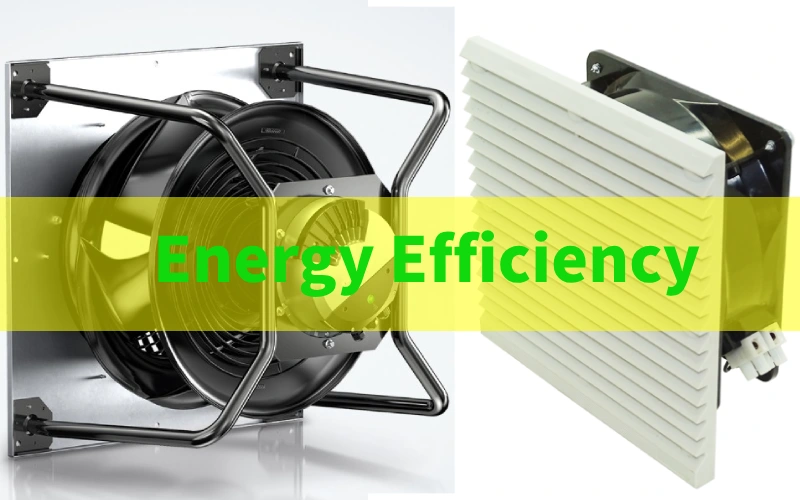
Efficiency Ratings
When you look at how well AC and EC fans work, you notice a big difference. EC fans usually work better than AC fans. In factories, how well a fan motor works can change your energy bills and how your system runs. The table below shows how AC and EC fans do in real life:
| Case | Fan Type | Motor Class | Efficiency (%) | Energy Saving (%) |
|---|---|---|---|---|
| 1 | AC Fan | IE3 | 51 | N/A |
| 1 | EC Fan | IE4 | 66 | 23 |
| 2 | AC Fan | IE3 | 10 | N/A |
| 2 | EC Fan | IE4 | 42 | 32 |
You can see EC fans with IE4 motors can reach 66% efficiency. AC fans with IE3 motors may only get to 51%. Sometimes, AC fans can drop to just 10% efficiency. EC fans not only work better but also save more energy in cooling systems.
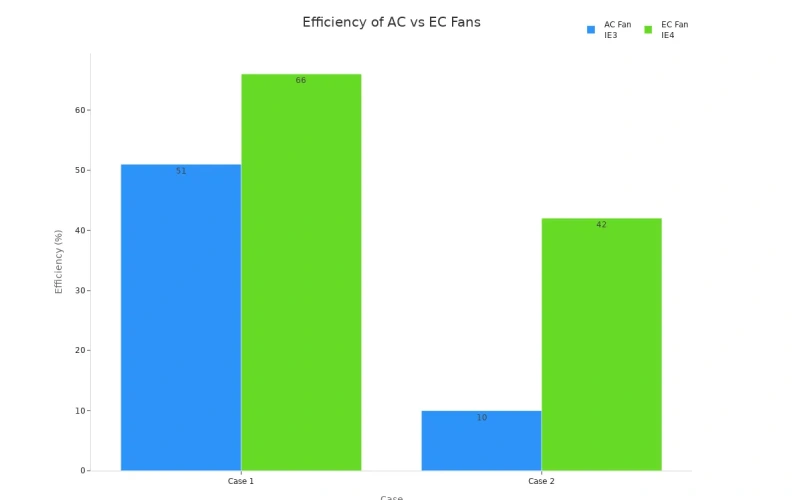
This chart shows EC fans do better than AC fans in both efficiency and saving energy. When you compare power to efficiency, EC fans give better results. This is true even in tough places like data centers.
Power Consumption
You want to use less energy in any cooling system. EC fans help you do this with their smart technology. Here are some main points about how EC fans and AC fans use power:
- EC fans can use up to 50% less energy than AC fans.
- They let you change the speed, so you can set the airflow you need and save energy.
- EC fans make less heat and noise, which helps your cooling system work better.
- Their small and light design makes them easy to use in places like data centers.
- EC fans have brushless DC motors with built-in electronics that turn AC into DC for better efficiency.
- Permanent magnets in EC fans help keep them efficient, even at slow speeds.
- EC fans can be up to 30% more efficient than AC fans.
- They watch and change how much power they use to stay efficient at all speeds.
- EC fans last longer and need less fixing, which saves you energy and money.
You get more control and better results with EC fans. They help you save money and energy over time.
Linkewell Fan Filter Unit Efficiency
Linkewell’s fan filter units make energy efficiency even better. When you use these units with EC fans, you can cut your power use by up to 30%. Linkewell builds its cooling fan systems to work well in factories. The fan filter units use inverter-driven compressors and EC fans to give strong airflow while using less energy.
You get these benefits:
- Lower energy bills because you use less power.
- Reliable cooling that keeps your equipment safe.
- Easy setup and care, which saves you time and work.
- Options you can change to fit your cooling needs.
Linkewell cares about efficiency, so you get a cooling system that works hard for you. If you need a fan for a control cabinet or a big panel, Linkewell’s fan filter units help you reach your energy-saving goals.
Performance Comparison
Speed Control
You want your cooling system to match your needs at any time. EC fans give you precise speed control. This means you can set the fan to run at any speed, from very slow to full power. You do not need extra devices to change the speed. AC fans usually run at one speed. If you want to change the speed, you need special controllers. This makes AC fans less flexible. The table below shows how EC fans and AC fans compare in speed control and performance:
| Feature | EC Fans | Traditional AC Fans |
|---|---|---|
| Motor Type | Brushless DC with AC to DC conversion | AC motor |
| Speed Control Method | Precise speed control (PWM/0-10V input) | Limited or no precise speed control |
| Speed Range | 0 RPM to full speed | Usually fixed speed |
| Power Consumption | Up to 70% less than AC fans | Higher power use |
| Airflow Performance | Higher airflow in same size | Lower airflow |
| Cooling Optimization | Matches cooling and noise needs | Less flexible |
With EC fans, you get variable speed operation and can fine-tune your cooling fan for the best performance.
Noise Levels
Noise can be a problem in many work areas. EC fans help you keep things quiet. They use smart motor control and brushless designs. This makes them much quieter than AC fans. AC fans often make more noise because of their motor design and fixed speeds. EC fans let you lower the speed when you do not need full power, which also lowers the noise. This makes EC fans a better choice if you want a quiet workspace.
Reliability
You need your cooling fan to last a long time. Reliability depends on the type of bearings and motor design. Fans with ball bearings, like many EC fans, can last up to 75,000 hours. AC fans with sleeve bearings may only last about 30,000 hours. Ball bearing fans work better for continuous use in tough places. EC fans also have fewer parts that wear out, so they need less fixing and last longer.
Linkewell Fan Filter Unit Performance
Linkewell fan filter units give you strong performance in industrial cooling. They use high-quality ball bearings and pure copper coils for long life. The units keep noise below 60 dB(A) with special airflow designs. You get easy installation and stable operation, even in harsh places. The fan filter units protect your equipment from dust and moisture, helping you avoid breakdowns. Many companies trust Linkewell for reliable and quiet cooling fan solutions. You can count on these units to keep your systems running smoothly and safely.
Cost Analysis
Initial Cost
When you look at the price of AC and EC fans, you see a difference. AC fans cost less when you first buy them. This is good if you want to spend less money right away. EC fans cost more because they have special parts and smart controls. The table below shows how they compare:
| Fan Type | Initial Cost | Technology Level |
|---|---|---|
| AC Fan | Lower | Basic |
| EC Fan | Higher | Advanced |
You might pick AC fans if you do not have much money. But you should also think about what you will pay later.
Operational Cost
How much it costs to run the fans is important. AC fans use more power because they only run at one speed. This means you pay more for electricity. EC fans have brushless motors and smart controls. They can save up to 70% on energy. You will also pay less to fix EC fans. They last longer and do not break as often. For example, EC fans can work for 10 to 15 years. AC fans may only last 5 to 8 years. Over time, EC fans save money because they use less power and need fewer repairs.
Tip: If you have many fans, using EC fans can save you a lot of money every year on power and fixing costs.
Total Cost of Ownership
The total cost of ownership means the price to buy, run, and fix the fan over its life. AC fans seem cheaper at first, but they use more power and need to be replaced more often. This makes them cost more in the long run. EC fans help you save money over time. They use less power, last longer, and need less fixing. In one example, EC fans saved $42,000 in energy and cut fixing costs by 70% in eight years.
Linkewell’s fan filter units help you spend less money over time. These units use energy-saving fans and smart controls to lower running costs. They also keep your equipment safe, so it lasts longer and needs fewer repairs. If you choose Linkewell, you get a cooling system that saves money and works well for a long time.
Choosing the Right Fan
Application Needs
You need to think about your needs before picking a cooling fan. Look at how big your space is and how much heat your machines make. Figure out how much air you need to move. Check if there is dust, water, or high heat in the area. You should also know what kind of power you have and how loud the fan can be. Here are some things to remember: Measure your room and ceiling to see how much air you need. Find out the airflow (CFM) your machines need. Think about things like wetness, dust, and heat. Make sure your power is safe and the right voltage. Decide if you want a fan that stays in one place or one you can move. Compare how well fans work, how loud they are, and if you can change their speed. Think about the total price, including buying, using, and fixing the fan.
When to Choose AC Fans
Pick an ac fan if you have a big space and need strong, steady air. AC fans are good for large control boxes, greenhouses, and big machines. They work best when you do not need to change the speed a lot. AC fans cost less at first and are easy to set up. Many factories use ac fans for simple cooling when saving energy is not the main goal.
Tip: AC fans are great for jobs that need strong, steady air and do not need fancy controls.
When to Choose EC Fans
Choose an ec fan if you want to save energy and keep things quiet. EC fans are good for places where you need to change the speed, like server rooms or new factories. These fans use less power and last longer because of their special motors. EC fans fit in small spaces and can be put in different ways. If you want to spend less on power and fixing, ec fans are a smart pick.
Linkewell Solutions
Linkewell has many fan filter units for both ac and ec fans. You can pick from different sizes, voltages, and filters to fit your needs. The LK32 Series comes in different colors and keeps water out. The FF Series is easy to open for fast filter changes. The FK55 Series is very thin for tight spaces. You can also get special filters for dust, oil, or chemicals. Linkewell’s fan filter units are made from strong materials and smart designs to keep your machines safe and cool. You get fans that work well and are easy to set up in any factory.
EC fans use less energy, last longer, and need less fixing than AC fans. The table below helps you see why EC fans are a better pick for cooling in factories:
| Feature | AC Fans | EC Fans |
|---|---|---|
| Efficiency | Moderate | High |
| Maintenance | Higher | Very low |
| Lifespan | Shorter | Longer |
| Speed Control | Limited | Excellent |
| Noise | Moderate | Low |
If you pick Linkewell’s fan filter units, you get cooling that works well and is dependable. Think about what you need and ask Linkewell for help with your cooling system.
FAQ
What is the main difference between AC and EC fans?
AC fans use alternating current and usually run at one speed. EC fans use smart electronics to control speed and save energy. You get more control and better efficiency with EC fans.
How do EC fans help lower energy bills?
EC fans use advanced motors and built-in controllers. You can adjust their speed to match your needs. This reduces wasted power and helps you save money on electricity.
Where can you use Linkewell’s fan filter units?
You can use Linkewell’s fan filter units in control cabinets, electrical panels, telecom boxes, and server racks. These units protect your equipment from dust and moisture while keeping it cool.
How often should you replace the filter in a fan filter unit?
Tip: Check your filter every 3 months. In clean areas, replace it every 4–6 months. In dusty or outdoor places, change it every 1–3 months for best performance.
Which fan type lasts longer?
| Fan Type | Typical Lifespan |
|---|---|
| AC Fan | 5–8 years |
| EC Fan | 10–15 years |
You get a longer lifespan with EC fans because they have fewer parts that wear out.
Conclusion
When comparing AC vs EC Fans, EC fans clearly lead in efficiency, lifespan, and performance. They use up to 70% less energy, offer precise speed control, and operate quietly with minimal maintenance. While AC fans have lower upfront costs, EC fans provide long-term savings and reliability.
Linkewell’s fan filter units maximize these benefits, making EC fans the smart choice for sustainable and high-performance industrial cooling solutions.

